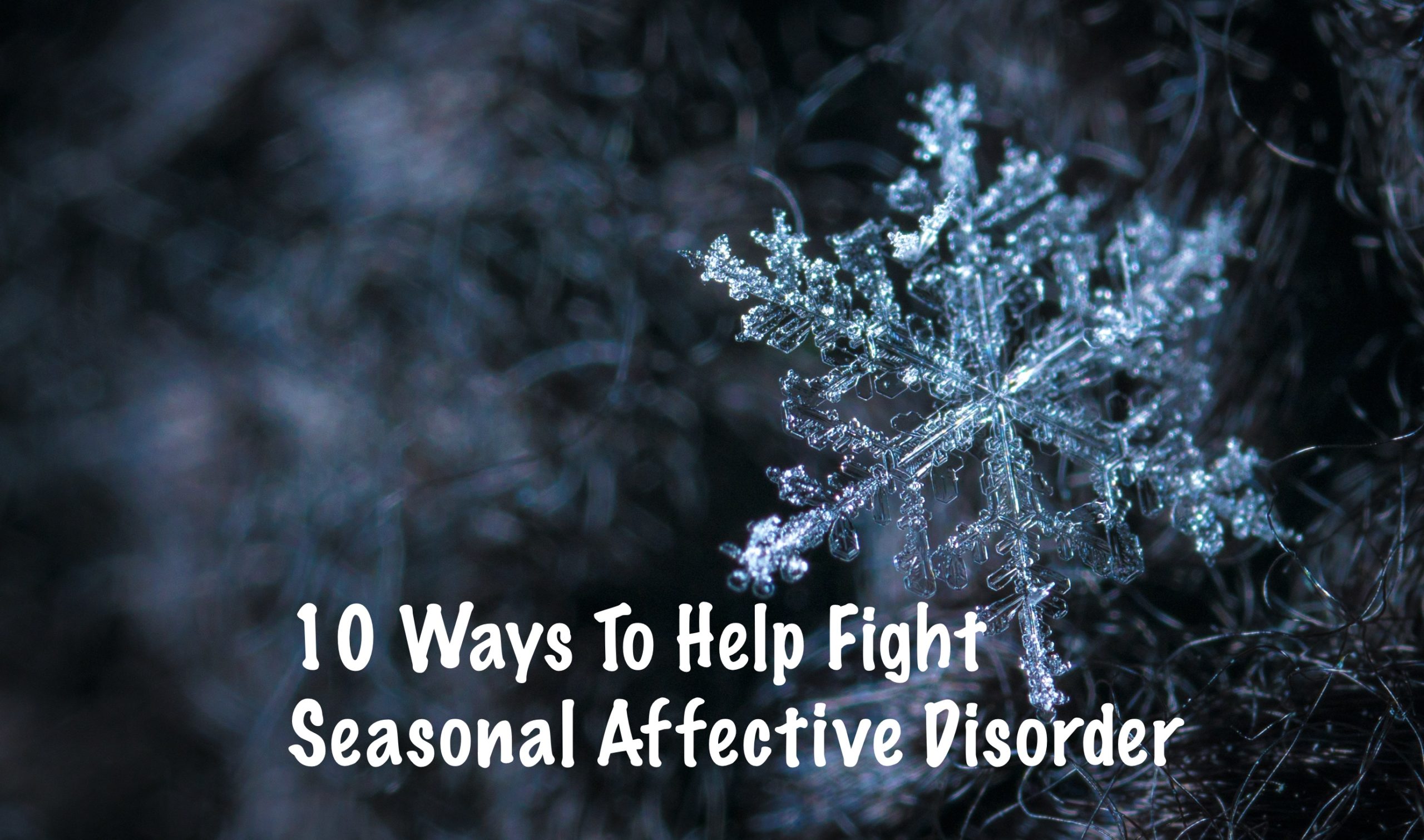
This time of year can be very difficult, especially for those who suffer from addiction, as holidays and moments of celebration are often considered to be triggers for those in recovery because of the social aspects of casual drinking or drug use during the winter months. What can make it even more difficult to remain sober during this time is when a recovering addict also suffers from Seasonal Affective Disorder, also known as SAD or seasonal depression.
Addiction is characterized as a brain disorder and can often be coupled with other mental health diagnoses or mood disorders, such as bipolar disorder or seasonal affective disorder (SAD). For people
who live with both a mental health disorder and struggle with addiction, just know that you are not alone. According to the National Institute of Mental Health, more than 20 percent of people who are diagnosed with a mood disorder, such as SAD, also suffer from a substance abuse problem.
Symptoms of SAD
If you are unsure whether or not you may be suffering from seasonal depression you can always speak with a mental health professional. Common symptoms of SAD include those of major depression along with several others. People who are suffering from seasonal depression may experience all or some of the following;
- Depressed mood
- Feelings of hopelessness
- Lack of energy
- Difficulty concentrating
- Changes in appetite and sleep patterns
- Loss of pleasure in certain activities
- Social withdrawal
- Cravings for carbohydrates (unique to SAD)
- Excessive daytime sleeping (unique to SAD)
- Heaviness in arms and legs (unique to SAD)


Causes of Seasonal Affective Disorder
Researchers and doctors are still unsure about the exact cause for seasonal affective disorder but some factors that attribute to this condition include;
- Biological Clock (Circadian rhythm)- As the days grow shorter around the fall or autumn season, we begin to lose sunlight, which can disrupt your body’s internal clock, causing feelings of depression.
- Serotonin Levels- The reduced sunlight can lead to a drop in the brain’s chemical that affects mood, the neurotransmitter serotonin.
- Melatonin Levels- The seasonal change can disrupt the body’s natural production of melatonin, which plays a role in sleep patterns and moods.
10 Ways to Fight Seasonal Affective Disorder (SAD)
If you are one of many suffering from the symptoms of seasonal depression and are wondering how to treat SAD, then do not worry, there are many treatment options available that can help alleviate some of the symptoms.
1. Know the signs and symptoms- Knowing what is happening with you and your body can help greatly in managing the symptoms. If you begin feeling sad during the autumn months, being aware of your seasonal depression can help keep you from spiraling down a hole that seems impossible to get out of, simply just by understanding what is going on.

2. Try light from a box- Light therapy is reported to be one of the most effective treatments for the “winter blues”. There are specialty light boxes or lamps designed to produce effects similar to natural light, helping to restore your body’s natural circadian rhythm and production of melatonin. Research suggests that sitting in front of a light box first thing in the morning, everyday, during the fall and winter months for at least 30 minutes can greatly reduce the symptoms of SAD.
3. Get outside as much as you can- Nature is a form of therapy for almost any mental health disorder. So, try to make it a point to go on a at least a 10 minute nature walk every day, or as often as possible, regardless of the weather. Studies have shown that even short walks increase mood, along with other mental and physical health benefits. Not to mention, the sunlight you get from being outside is much more beneficial than that from a window, helping to promote natural production of serotonin and melatonin. Going outside around noon when the sun is brightest can help reap the most benefits in a short amount of time.
4. Exercise regularly- Aside from talking a daily break in nature , trying to exercise regularly is especially important for people suffering from SAD. Exercise is a proven treatment for many forms of depression. Try combining your daily exercise with going outside to help decrease the symptoms of seasonal depression.
5. Take vitamin D- Low levels of vitamin D have been linked to SAD in at least one study, so doctors have begun urging patients to up their vitamin D intake, especially during the winter months.
6. Caring for plants- Research has shown that gardening can help reduce feelings of depression. By caring for something small during the winter months, it can help alleviate some of the symptoms of seasonal depression.
7. Stay Connected- Avoid the sometimes overwhelming feeling to remain reclusive during the cold months. Stay connected with your family and remain active in your support groups, such as AA, even when you feel like hibernating. Staying connected with your support group can help combat feelings of depression by getting you out of the house and by allowing you the opportunity to express out loud how you are feeling.
8. Paint walls in lighter colors- Studies suggest that people who suffer from seasonal depression feel better when they are surrounded by lighter colors. Aside from the mood lifting ambiance, sometimes just doing the activity of painting alone can be a soothing process for someone with a depressive disorder.
9. Keep a journal- Sometimes we have thoughts or feelings we are uncomfortable sharing with others, by writing them down we can begin to understand our emotions better. Writing down our negative thoughts or emotions gives us the opportunity to cope with them and feel as though we have gotten them off our chest, allowing ourselves the chance to fully process them. Plan on writing for at least 20 minutes a day, and try doing it before bed so that you can express the last 24 hours in as much detail as possible.
10. Try aromatherapy- Essential oils can activate the same part of the brain that is responsible for controlling moods and our internal clock. Purchase an oil diffuser for your home or workspace, or try adding a couple drops in your bath.
While all of these tips are useful, knowing when to get contact a professional for help is the most important. If you are having extreme thoughts of suicide or are having a difficult time with coping during the winter months, or in general, then there is nothing wrong with getting help. Speak with your doctor, who can potentially prescribe medications, or contact a counselor or therapist who can help you cope with the emotions of depression. If you are a recovering addict and find that you are struggling to stay sober, we are always here to help! Reach out to us today to begin specialized treatment.






